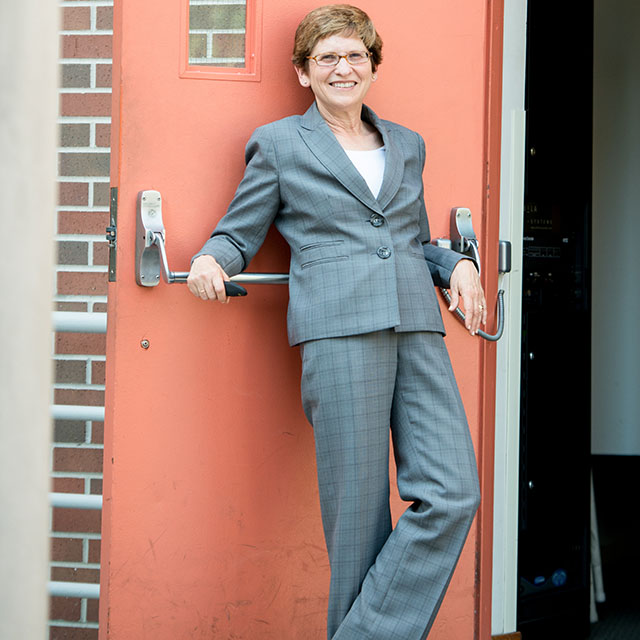Levenson Loves the Law

Students strolling through the courtyard at Loyola Law School may occasionally be a bit baffled to hear a grown woman shouting, “Last call for a good time!” Two surprises: One, she’s talking about a law class. Second, she’s entirely not kidding.
“I do want the students to love the law,” says Laurie Levenson, the author of the call and a longtime LLS professor. Her sometimes playful manner, she says, doesn’t make what goes on in her classrooms, or in the many real-world efforts she introduces students to, “any less serious or any less important. We always work harder on things we love.”
And while she makes sure students have fun — an annual Dress-as-Your-Favorite-Defendant Contest” is often the highlight of the year — much of what Levenson has invested herself in over the years is dead serious.
Levenson leads the Fidler Institute, an annual symposium that brings the often isolated political and legal subcultures together. “We’ve had governors, mayors, wardens, defense attorneys, judges, prospective students. It’s not just lawyers,” she says. “If we’re going to make progress, we need to listen to each other. It’s become a home for evaluating and reforming the criminal justice system.”
She also co-founded the Project for the Innocent with a handful of then-students. “I’m insanely proud of it,” she says of the group’s record of saving people who’s spent a decade or three in prison for crimes they didn’t commit. “There’s nothing more rewarding than giving people their freedom.”
Levenson, who grew up in Inglewood, was a member a high school class that included, she says, more people who’d go to prison than graduate from college. (She took a few courses at the local university where she now teaches.) After degrees from Stanford and UCLA and some apprentice work, she became a criminal lawyer. “It’s a little unusual for a former prosecutor like me to start an innocence project,” she says. Her worldview didn’t so much pivot as evolve. “The longer I was at Loyola, the more I could step back and get perspective on the legal system.”
It’s also allowed her to stay involved in real-world issues. “Loyola prides itself in putting out good lawyers,” she says, in a variety of specialties. “But our commitment is to social justice. It’s about making the world a better place. And we don’t think that’s hokey.”